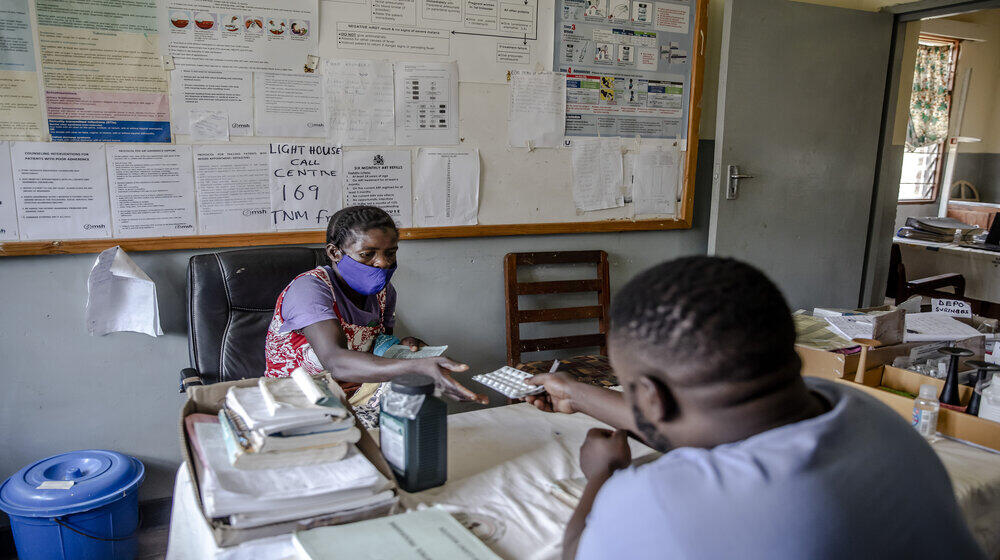KARONGA, Malawi - As any young mother, Christina* from Karonga looked to the future with hope. Christina’s had grand dreams for her three children. She wanted them to go to school, then university and become prominent people in society.
To this end, Christina and her husband worked hard to put their children in good schools. Christina ran a hair salon and her husband had a goods stall in the local market.
For years, the family lived a happy life. However, disaster struck when their first born child aged five, suddenly became ill, and within a few hours, passed on. The tragedy hit the family hard and it was difficult for the couple to come to terms with the death of their son.
“He was such a bright and lively kid,” recall Christina. “Up to now, I still think he will come back to us.”
On the fateful day, Christina woke up early to prepare breakfast for the family. When the food was ready, she called her kids in the small family kitchen where they also used as a dining room. When they were done eating, her first born son started complaining of stomach pains.
“At first, I thought it was indigestion but he kept on complaining and that’s when we rushed him to the hospital,” she says. “When we arrived at the hospital, he was weak. The health staff tried to help him but he didn’t make it.”
As the family was still coming to terms with their loss, their second born child, aged two, also passed on. The death created a chasm in the family. Christina’s husband and his relatives started blaming her of killing the children. The allegations hit her hard, and for some time, she suffered from high blood pressure.
“I couldn’t come to terms with the fact that they were accusing me of killing my own children,” says Christina. “I felt that this was too much and I decided to walk away from the marriage.”
For three years, Christina stayed single. She didn’t want anything to do with marriage. The experience of her last marriage were still fresh and she couldn’t stand another heartbreak. Seeking a fresh start, she moved to Salima, a district in the central region of the country, where she set up her salon business.
As her emotional wounds started to heal, she met a man who was interested in her.
“I accepted his proposal but I wanted more time to know him better,” says Christina. “I also had to be open with him so I told him about my past, and he said he was okay with it.”
Christina agreed with her boyfriend that she take a long term family planning method as she was not ready to be a mother again. Memories of the death of her children were still fresh. And the boyfriend had no objections.
Christina went to Salima District Hospital to get more information on her choice of contraception. She met dedicated staff who not only gave the correct advice but also made available the service.
Salima, like all the districts in the country, is benefitting from the UNFPA Supplies Thematic Fund. The Fund procures sexual reproductive health and family planning commodities to empower women and adolescent girls to voluntarily and safely choose when to have children, and how many they want to have. In addition, the Fund ensures last mile assurance, that is, making sure the commodities reach the end users.
For Christina, she opted for a three-year contraceptive implant.
This gave me time to know my boyfriend better and also plan for a new life
When Christina was convinced that her boyfriend was really committed, she accepted the marriage proposal. She went back with him to her home village in Karonga to meet the elders from the family for marriage arrangements.
“After our families agreed on the bride price, we finally got married and decided to relocate to Karonga as there are more business opportunities than in Salima,” she explained.
A year later, Christina was blessed with a baby girl. However, she says, for now she only wants one child.
“I talked with my husband and we agreed that we needed to space our children well to give us time to concentrate on our businesses,” she says. “I immediately went to our health centre for another three-year contraceptive implant.”
Through the Last Mile Assurance (LMA) process, UNFPA provides assurance that its programme supplies are adequately managed and safeguarded by Implementing partners across all levels of the supply chain, reaching the service delivery points in a timely and effective manner.
*Name changed for privacy and protection.
Joseph Scott and Milika Mdala



